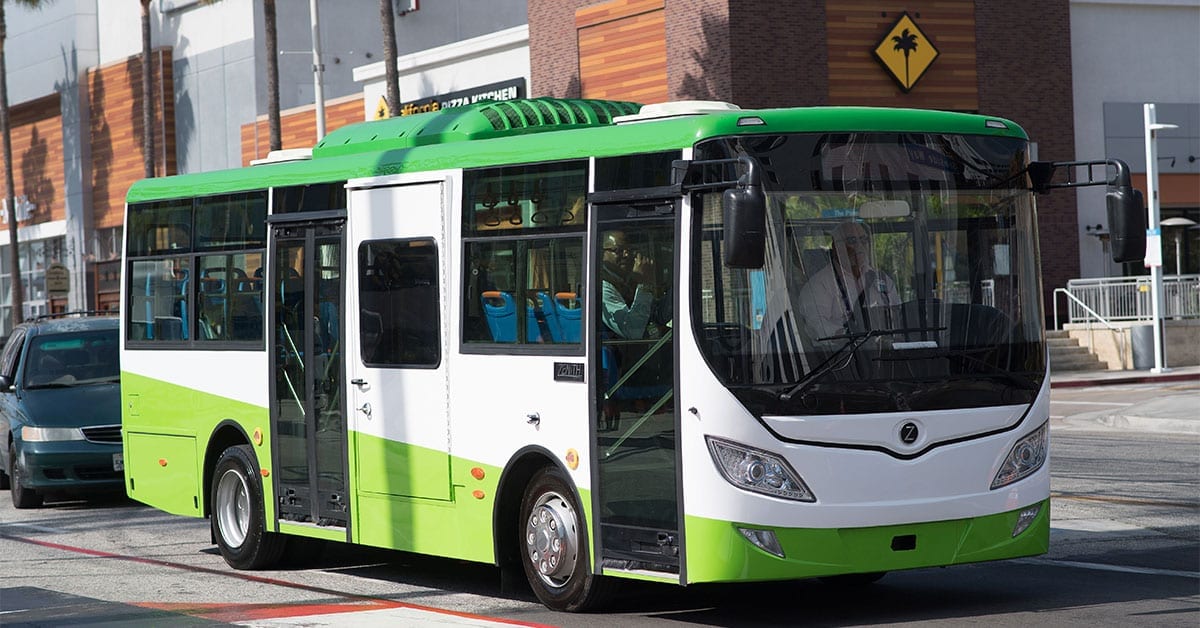Public fleets represent a large, concentrated system of vehicles primed for electrification. The decision for a public agency’s fleet to go electric, however, can come with a host of challenges. In response, major cities and organizations around the US are currently developing a model which accelerates the transition to electrification.
Join the Electrification Coalition, City of Los Angeles, City of Orlando, and Sourcewell for an engaging session on Tuesday, April 23rd, at ACT Expo, to learn about accelerating the deployment of EVs in your agency. Staff from these organizations will be available to meet for one-on-one discussions immediately following the panel, as well as for the duration of ACT Expo.
By attending the Electrifying Fleets through Aggregated Purchasing session, attendees will learn how:
- The Climate Mayors EV Purchasing Collaborative (the Collaborative) is reducing traditional barriers to EV procurement
- Mayoral and Sustainability Offices are collaborating with fleets on their goals to set metrics and save money
- Fleets are leveraging intra-departmental support for a more rapid acquisition and deployment of electric vehicles with supporting infrastructure
- The Collaborative’s partners are offering a cooperative purchasing program for EVs with competitively sourced solicitations with a high-quality selection of nationally leveraged, contract solutions. These partners will share exactly how to get connected to leverage these contracts.
With more than 8.5 million fleet vehicles in operation, electrification of our nation’s fleets represents the current frontier for the important task of decreasing the United States’ dependence on oil-based fuels (ORNL, 2017). The United States is the largest consumer of oil in the world and more than 70% of oil use stems from the transportation sector (International Energy Agency, 2018 and Energy Information Administration, 2018). These combined statistics demonstrate the significance of the US transportation sector’s fleet segment in decreasing oil dependence.
The Climate Mayors Electric Vehicle Purchasing Collaborative
The Collaborative is a partnership of Climate Mayors cities, nonprofit organizations, and a cooperative procurement agency working to accelerate the transition of city fleets to EVs. By creating a new and innovative cooperative purchasing mechanism, the Collaborative is reducing the major barriers to fleet electrification for cities and other public agencies.
This first-of-its-kind, one-stop platform connects cities with total cost of operation assessment tools, a large variety of purchasing options for EVs and charging stations, competitive and transparent pricing, and leasing options that can help capture the federal tax credit for EVs (a current challenge for public agencies). The Collaborative also provides cities with training, best practices, educational materials, and analysis to accelerate the EV transition of their municipal fleets.
By creating a new and innovative cooperative purchasing mechanism, the Collaborative is reducing the major barriers to fleet electrification for cities and other public agencies.
A Network of Leaders
The Collaborative is a joint effort of Climate Mayors, the Electrification Coalition, and Sourcewell. Climate Mayors is a network of more than 400 US mayors committed to taking meaningful action on climate change. This network of leaders is emerging as a key voice and demonstration of the ongoing commitment of US cities to accelerate climate progress. The Electrification Coalition is a nonpartisan, nonprofit organization committed to accelerating EV adoption on a mass scale and is the lead implementation partner for the Climate Mayors transportation electrification initiative. Sourcewell facilitates a competitive solicitation and awards process for vehicles and service equipment on behalf of their 50,000+ members across North America, and is available to help its partners resolve all challenges and concerns regarding the leasing and contracting process.
Which Cities are Leading the Way to Fleet Electrification through the Collaborative?
As of the end of March, 43 US cities and five counties have committed to transition a total of 953 light-duty vehicles to EVs by 2020. From the list below, fleets are committing vehicles to the Collaborative to establish a nation-wide effort to deploy EVs and EV charging stations. These cities and counties are purchasing their vehicles from a combination of contracts including the Collaborative, state bids and RFP processes managed by their procurement team.
US Cities and Counties Making Commitments to Fleet Electrification
- Alameda County, CA
- Ann Arbor, MI
- Aspen, CO
- Austin, TX
- Berkeley, CA
- Beverly Hills, CA
- Binghamton, NY
- Burlington, VT
- Cape Canaveral, FL
- Cape May Point, NJ
- Chula Vista, CA
- Cincinnati, OH
- Charlotte, NC
- Cleveland, OH
- Columbus, OH
- Cuyahoga County, OH
- Denver, CO
- Des Moines, IA
- Fayetteville, AR
- Greenbelt, MD
- Hennepin County, MN
- Highland Park, NY
- Hoboken, NJ
- Houston, TX
- Jersey City, NJ
- Long Beach, CA
- Los Angeles, CA
- Los Angeles County, CA
- Louisville, KY
- Madison, WI
- Olympia, WA
- Orlando, FL
- Phoenix, AZ
- Pima County, AZ
- Pittsburgh, PA
- Plainsboro, NJ
- Portland, OR
- Redwood City, CA
- Rochester, NY
- San Diego, CA
- Sacramento, CA
- Santa Monica, CA
- Satellite Beach, FL
- Seattle, WA
- Somerville, MA
- Verona, NJ
- Washington, DC
- West Palm Beach, FL
- Yonkers, NY



